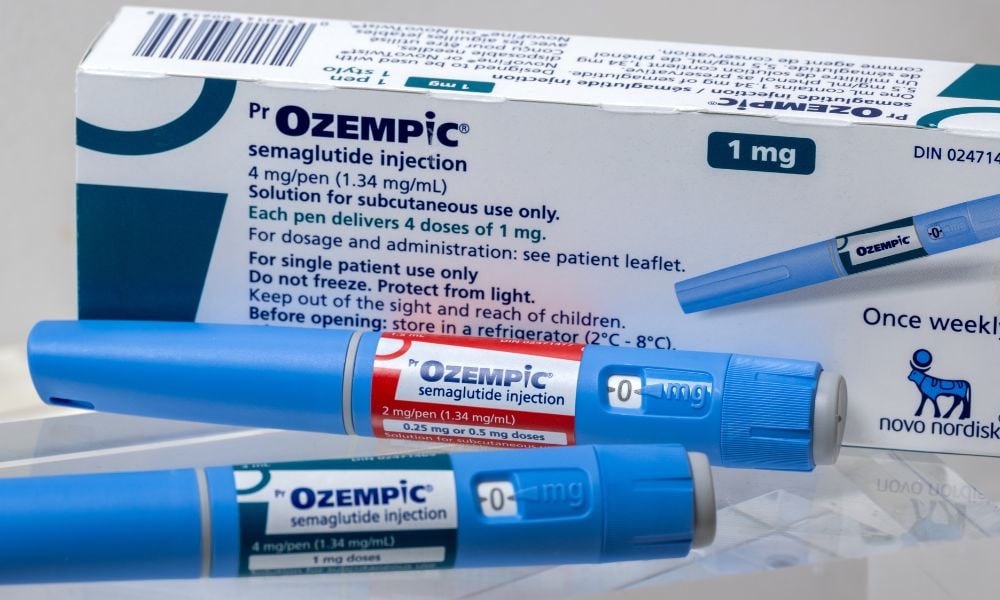FLOW trial shows semaglutide cuts risk of kidney disease progression and cardiovascular death in T2D

Chronic kidney disease (CKD) affects up to half of people with type 2 diabetes (T2D) and is linked to higher rates of cardiovascular disease and mortality.
New evidence from the FLOW trial has shown that semaglutide can reduce the risk of kidney disease progression and cardiovascular death in this population.
Health Canada has approved Ozempic (semaglutide injection) for once-weekly treatment of adults with type 2 diabetes (T2D) to improve glycemic control.
The approval also covers reducing the risk of sustained estimated glomerular filtration rate (eGFR) decline, end-stage kidney disease, and cardiovascular death in adults with T2D and chronic kidney disease (CKD).
The FLOW trial, conducted in 28 countries including Canada, enrolled 3,533 participants and was stopped early in 2019 following a recommendation from an Independent Data Monitoring Committee due to efficacy.
The randomized, double-blind, placebo-controlled study met its primary endpoint, with semaglutide 1 mg reducing the risk of kidney disease progression and kidney or cardiovascular mortality by 24 percent compared to placebo.
David Cherney, senior scientist at Toronto General Hospital Research Institute and Primary Investigator on FLOW, said the addition of semaglutide to standard treatment reduced the risk of kidney disease progression and death from cardiovascular disease or kidney failure.
He noted that the findings mean patients have a better chance of avoiding kidney failure or cardiovascular complications.
Alice Cheng, Endocrinologist at Trillium Health Partners and Unity Health Toronto, and Associate Professor at University of Toronto, said many people with T2D may not know they have CKD, which makes regular urine testing essential.
She said the FLOW study highlights another option to slow kidney disease progression and reduce cardiovascular risk.
CKD is a significant health issue in Canada, affecting about 4 million people.
It is defined as kidney damage or reduced kidney function lasting three months or more and can develop without symptoms for years before detection.
About 40 percent of those with T2D will develop CKD, though early stages are often asymptomatic and under-diagnosed.
Declining kidney function increases the likelihood of multi-morbidity and higher mortality.
T2D, CKD, and cardiovascular disease are closely linked.
Ozempic was originally approved in 2018 by Health Canada for glycemic control in adults with T2D.
It can be prescribed with metformin, sulfonylurea, sodium-glucose cotransporter 2 inhibitors (SGLT2i), and basal insulin with metformin.
Its expanded indication now includes reducing the risk of sustained eGFR decline, end-stage kidney disease, and cardiovascular death in adults with T2D and CKD.



